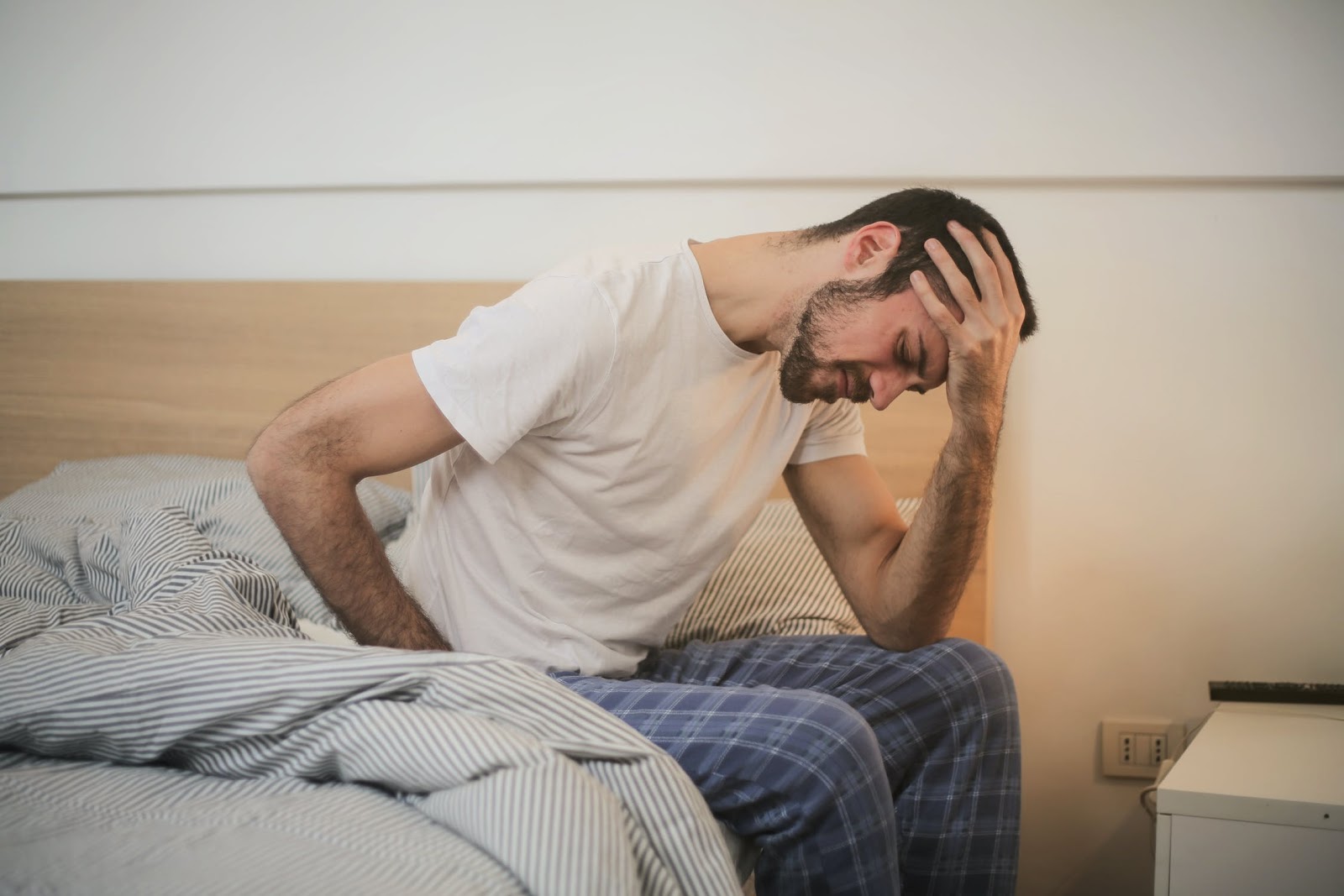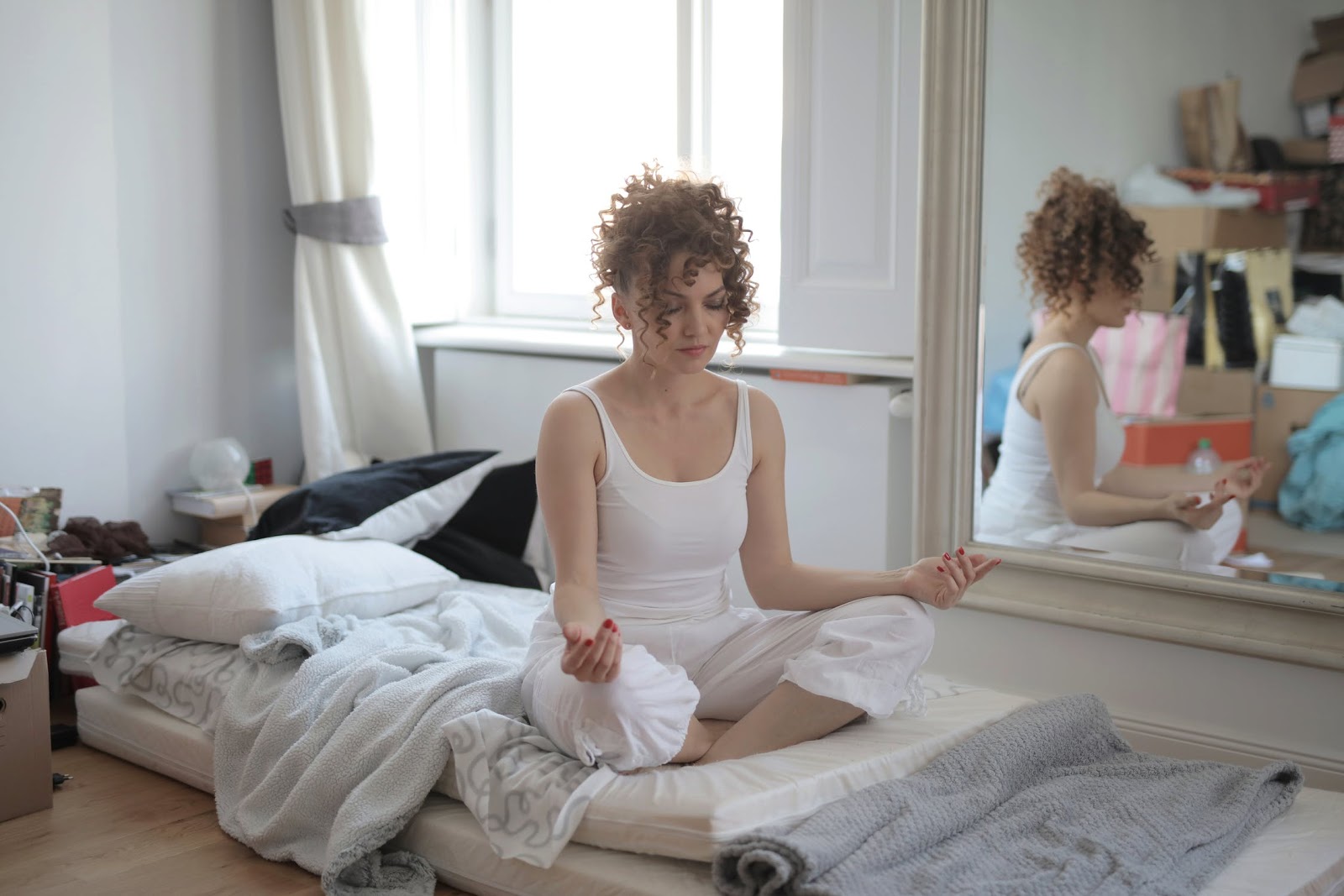You turn off the light, hit the pillow, and toss and turn. But you still can’t sleep. If stress plays a large role during your waking hours, it may also be preventing you from getting the necessary amount of sleep you need to function during the daytime.
While stress can serve an important role in certain situations, like keeping you alert in dangerous or highly demanding scenarios, sleep deprivation most certainly does not. The more tired you are, the likelier you’ll be to fall asleep at your desk during your nine to five, coffee cup in hand and all. Here’s how to tell if stress is preventing you from getting a good night’s sleep, and more importantly, what you can do about it if it is.
Am I Really THAT Stressed?
Several factors can contribute to an inability to sleep. Here’s how to tell if stress is one of them.

Uncontrolled and elevated levels of stress can cause insomnia as well as several other symptoms. While symptoms of stress vary on the person and may be difficult to identify amid someone’s stressed mindset, here are some common ones:
Physical symptoms:
Headaches, sickness, nausea and/or dizziness, acne, chronic pain, rapid heartbeat, sweating, and an increase or decrease in appetite.
Emotional symptoms:
Depression, general anxiety, feeling overwhelmed, and loneliness.
Cognitive symptoms:
Poor judgement, inability to concentrate, racing thoughts, memory problems, and constant worrying.
If your inability to sleep is coupled with some of the symptoms above, stress is likely something you’ll need to address before getting relief.
One Step too Far: When Stress Manipulates Your Sleep Cycle
Stress leads to sleep deprivation, which leads to more stress…it’s a vicious cycle that needs to stop.

About eight in ten Americans report feeling stress frequently or sometimes throughout their daily lives, and understandably so. Just thinking about politics, pandemics, paying bills, or meeting work deadlines can make someone’s heart beat faster. Dealing with stress is not about preventing it from entering your life, but being able to manage it when it does come into play.
The Mayo Clinic recommends that adults get somewhere between seven and nine hours of sleep every night. But this will be more difficult to do if the day’s worries and tomorrow’s to-do’s still circulate in your brain, preventing yourself from entering into a more relaxed state.
Stress can cause the nervous system to trigger the fight-or-flight response, which releases hormones that keep the body alert and ready to take action. While you may have already brushed your teeth and put on your pajamas, if your brain can’t calm down you won’t be able to sink into a restful sleep.
Receiving less than the required amount of sleep every night can cause significant sleep deprivation, especially if continued over time. This can prevent you from performing the next day’s necessary tasks and responsibilities at an optimal level, which can create anxiety later on, especially if the tasks are school or work related.
Having to makeup for mistakes or missed tasks due to a lack of focus brought on by sleep deprivation can create even more stress than before, making falling asleep the next night even more difficult. Stress and sleep deprivation combine to form a cycle that can easily repeat itself. If not stopped, the cycle will exacerbate present symptoms of stress as well as encourage new ones to appear, leading to some of the severe physical and mental side effects mentioned above.
Kicking Stress to the Curb (or Anywhere but the Bedroom)
Say goodbye to restless nights with some of these tips.

While stress may inevitably enter your life, there are several practices you can develop to prevent it from controlling your sleep schedule (and your life).
Lifestyle changes
Stay active: Being physically active is not only a great way to boost your mood and stay healthy, it can also help you fall asleep easier by releasing some of your body’s pent up energy from a stressful day.
Practice mindfulness meditation: Teaching yourself how to sit still and develop an awareness of the thoughts entering your mind is a useful skill that can make you more equipped to handle stressful situations. Meditation is a practice that takes time and patience to fully develop, but once you do, it can be one of the most effective ways to develop a relaxed mind and a better sleep cycle.
Talk it out: If your feelings of stress or anxiety become too overwhelming to handle on your own, reach out to someone who you can talk to. This can be someone in your personal life, like a family member or a friend, or it can also be a counselor trained to help people manage stress and maintain a healthy lifestyle.
Make time to relax: While it is important to be productive in your work life and present during your social life, finding time for yourself is crucial as well. Make it a habit to do something you enjoy every day. This can be something simple, like carving out time for a 20 minute walk around the neighborhood, or you can purposefully indulge in some of your guilty pleasures, like watching an episode of your favorite TV show. It doesn’t matter what it is, just that you enjoy it.
Everyone deals with stress in their life to some extent, but it’s not something you should be losing sleep over. Managing the impact stress has on your life may feel just as overwhelming as the stress itself, but incorporating one daily practice that changes your lifestyle is a great way to start–it will help you fall asleep a little easier, and one restful night is all it takes to break the stressful sleep deprivation cycle.
